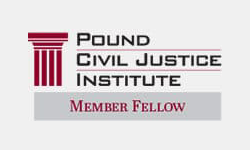ELECTRONIC DISCOVERY IN DIVORCE
Rhode Island Divorce Attorneys Using State-of-the-Art Technology
Years ago, people may have had only a note, a card, or a hotel receipt as tangible evidence to prove infidelity, financial secrecy, or other misconduct in marriage. Today technology provides us with a range of possibilities for such discovery in a divorce case.
TJC • ESQ is a family law firm in Rhode Island with significant experience in electronic discovery and computer forensics. Attorney Tim Conlon frequently lectures on this topic to legal associations, trial lawyers and judges throughout the country. Our Rhode Island divorce lawyers consult with other attorneys facing electronic discovery issues in divorce.
If you are facing divorce and searching for a family lawyer experienced in these issues, contact us online or by calling 401-400-4254.
Methods of Electronic Discovery
Family law courts have increasingly relied on electronic evidence as a means of determining the marital estate, or documenting the misconduct of a party during the marriage when the parties face divorce cases.
As a family law firm that uses electronic discovery, we work with investigators to review the following:
- Emails
- Text messages
- Computer hard drives
- Internet browsing history
- Online banking records
- Instant messaging history
- Calendar entries
- Social media accounts
The Wrong Way to Capture Electronic Evidence
When you stop and think about how much information is stored on hard drives, on distant servers, through cloud storage, and so forth, you will realize that digital information is everywhere. Information that you think is permanently deleted usually still exists in numerous places, many of which you have never accessed. Even when data only existed on one physical hard drive, permanently deleting it is close to impossible.
Due to this abundance of potential e-evidence to use in a divorce case, people are often tempted to do anything they can to get as much as they can. When all avenues are explored, this drive to amass evidence and information typically ends in using spyware to keep tabs on a spouse, or intrusive computer viruses to crawl through their data and online accounts, copying whatever could be of use. While this might sound useful, it absolutely is not.
Three reasons you should never use spyware or viruses to gain electronic evidence:
- It is illegal: Using software that spies on another person or takes their data without their knowledge is illegal both under state and federal statutes. If you admit to such means in court, you should not be surprised if a bailiff puts you in handcuffs before the session concludes. Conviction of using spyware and similar software could sentence you to prison time and cost you thousands.
- It is inadmissible: Any evidence gathered through illegal means is inadmissible in any court. If you use spyware to get data from your ex-spouse’s computer, cellphone, tablet, and so on, you cannot use it in court. You could find a written, validated statement that they were cheating on you and it would mean exactly nothing to the judge because it was gained through illegal means.
- It is morally questionable: There is no family law judge in the country that will feel comfortable assigning child custody rights to a parent who used illegal software to gain electronic evidence. Resorting to such tactics will probably strip you of parenting time and could result in you gaining less property through equitable distribution as an unspoken form of courtroom punishment.
The only time you can grab digital information from a spouse or ex-spouse is when the data is saved on a physical hard drive within your home and within your shared possession. For example, if your spouse saved pictures of their affair on the family computer in the living room, you could use a flash drive to copy those image files for later use. It is always best to consult with a professional Rhode Island divorce attorney well-versed in e-discovery methods to ensure you never overstep a legal boundary.
Combining Technology & Cutting-Edge Legal Knowledge
Today’s electronic discovery mirrors society’s use of technology in nearly every facet of life. The amount of information stored electronically is astounding. As this information makes our lives easier in many ways, the electronic ‘trail’ that is left behind by our activities grows. Is there a voicemail in your (or your spouse’s) email? Does that photo in a cell phone contain information documenting when, and where it was taken. That kind of information can be crucial evidence in a divorce case.
Attorney Tim Conlon is a frequently lecturer on the topic of electronic discovery, and understands the complexities involved in this type of investigation. Other family lawyers and law firms look to us for knowledge of electronic discovery in uncovering hidden assets or an extramarital affair. Our firm is proud to offer the latest in technology to clients facing divorce.
Let’s Discuss Your Divorce: 401-400-4254
If you are interested in learning more about electronic discovery in divorce, don’t hesitate to contact our team.
You can reach us by calling 401-400-4254 or requesting a consult online.
TJC • ESQ is now a part of Burns & Levinson, one of the largest and most respected family law firms in the nation. Learn more.










